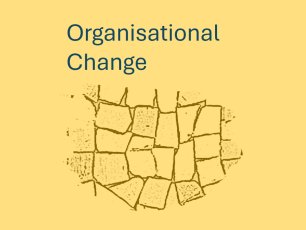Other methods
Mosaic transformation


Mosaic transformation
Mosaic transformation


Mosaic transformation
£100 pre-recorded
Mosaic transformation
Multi-Methodology
As we delve into our complex situations, it is essential to have a rational basis for selecting appropriate approaches that will aid in understanding and taking action. Historically, practitioners have often relied on a single familiar approach based on their training, education, or personal biases. However, systems thinking practitioners possess a variety of systems approaches, leading to the question: which approach should be used for what purpose and why?
Multi-methodology approaches have evolved over time from the development of the multi-paradigm approach by Mike Jackson and colleagues at (the University of) Hull, from the System of Systems Methodology (SOSM) to Critical Systems Thinking (CST). There is also Ray Ison’s bricolage and design-turn based approach from the Open University. These alternative approaches offer foundational theories that practitioners can use to select and justify their own systems methods and approaches.

Multi-Methodology Approaches in System Thinking
Multi-Methodology Approaches in System Thinking

.

Systems Practice: How to Act: In situations of uncertainty and complexity in a climate-change world
Systems Practice: How to Act: In situations of uncertainty and complexity in a climate-change world


Critical Systems Thinking and the Management of Complexity
Critical Systems Thinking and the Management of Complexity

CONAN
Using Confrontation Analysis effectively provides another perspective on complex situations, defining the dilemmas involved and helping set out potential options for eliminating them. It is has been used for international issues, banking crisis and for political issues.
Confrontation Analysis as a technique was developed by Howard, Bennet, and Bryant (1971), as a response to the difficulties of game theory in modelling some international conflicts. The problem for Howard, Bennet and Bryant was that in many crises, rather than working from pre-designed initial strategies, the contending sides often dynamically introduced new strategic options as the situation developed. As a result, analysts could no longer map out and evaluate all the available paths in advance at the start of a crisis, as ‘players’ introduced new options and so created many more paths. Faced with the pressure of an apparently insurmountable dilemma, human ingenuity seems to inspire those involved to ‘change the game’ in their favour.

The Confrontation Analysis Handbook: How to Resolve Confrontations by Eliminating Dilemmas; Innovations in Wargaming Volume 3
The Confrontation Analysis Handbook: How to Resolve Confrontations by Eliminating Dilemmas; Innovations in Wargaming Volume 3


Confrontation Analysis: How to Win Operations Other Than War
Confrontation Analysis: How to Win Operations Other Than War


Organisational Decision Making: What lies beneath managers’ decisions
Organisational Decision Making: What lies beneath managers’ decisions

INFORMED
This framework, encapsulated by the acronym INFORMED, which stands for Investigating Narratives, Framing Orientations, Reflective Mapping, and Exploring Distinctions, will help you navigate the intricate landscape of organisational change initiatives.
The INFORMED CHOICES framework provides you with a better understanding of the complex human factors that shape organisational change. The framework amplifies your capacity to devise creative solutions and encourages the exploration of multiple and conflicting perspectives. In doing so, you uncover and highlight the obstacles of taking action and the enablers of organisational change. As a result, the solutions you develop are more likely to work effectively in your organisation.

















